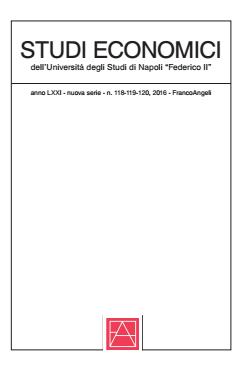
La “Scuola di Scienze corporative” dell’Università di Pisa (1928-1944)
Il volume illustra, in una prospettiva interdisciplinare, l’articolazione della prima “Scuola di Scienze corporative” creata in Italia. Fondata a Pisa nel 1928 – su iniziativa di Giuseppe Bottai, Giovanni Gentile e Armando Carlini – e finalizzata alla formazione di una classe dirigente che avrebbe dovuto operare nelle istituzioni politiche, economiche e corporative dell’Italia fascista, fin dalle origini rivolse particolare attenzione alle discipline di carattere economico teorico e applicato e di carattere giuridico.
cod. 379.7






